- Home
- Who are we?
- Sustainability
- Waste Management and Circular Economy
Waste Management and Circular Economy
The correct management of waste, as well as its minimization, is another of the areas of action of the Tibidabo Amusement Park in order to reduce its environmental impact. The action plans that are being implemented are included in 3 strategies:
- Improving recycling and economy
- Waste reduction
- Food waste
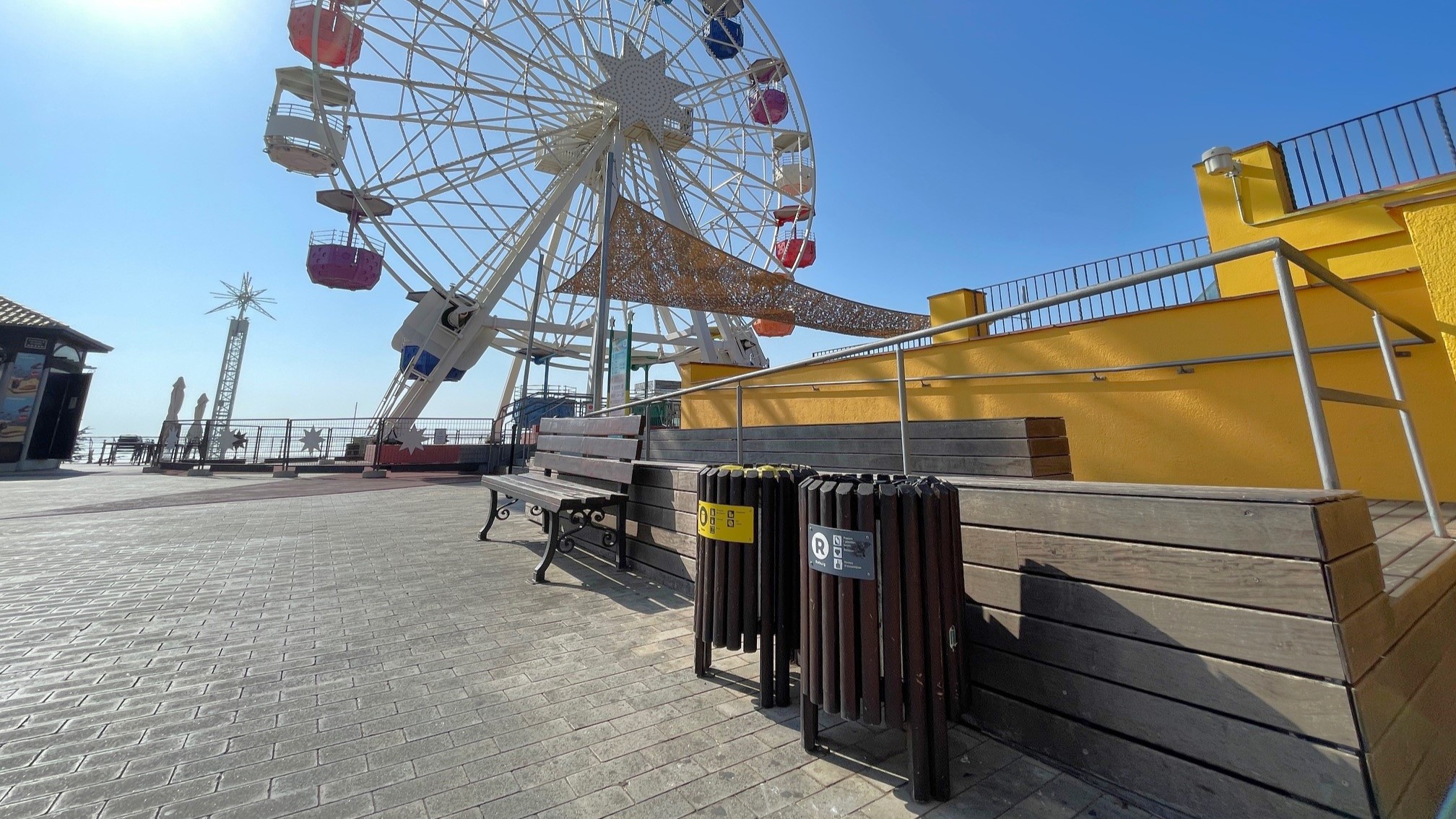
Recycling efficiency in Barcelona, and more broadly in Catalonia, has been gradually improving in recent years, although there is still room to achieve the objectives set by the Sustainable Development Goals (SDGs), especially SDG 11 (sustainable cities and communities) and SDG 12 (responsible production and consumption). According to data from Idescat, the recycling rate of municipal waste in the city of Barcelona has evolved as follows:
- 2021: 38.5%
2022: 39.8%
2023: 40.6% (estimated figure)
Despite the progressive improvement, Barcelona is below the metropolitan average and far from the European target of 55% for 2025.
At the Tibidabo Amusement Park, we are increasing this selective collection rate, closing the year 2024 with 44% and a waste reduction of 23%:
In addition, below we describe some of the transformations of some fractions:
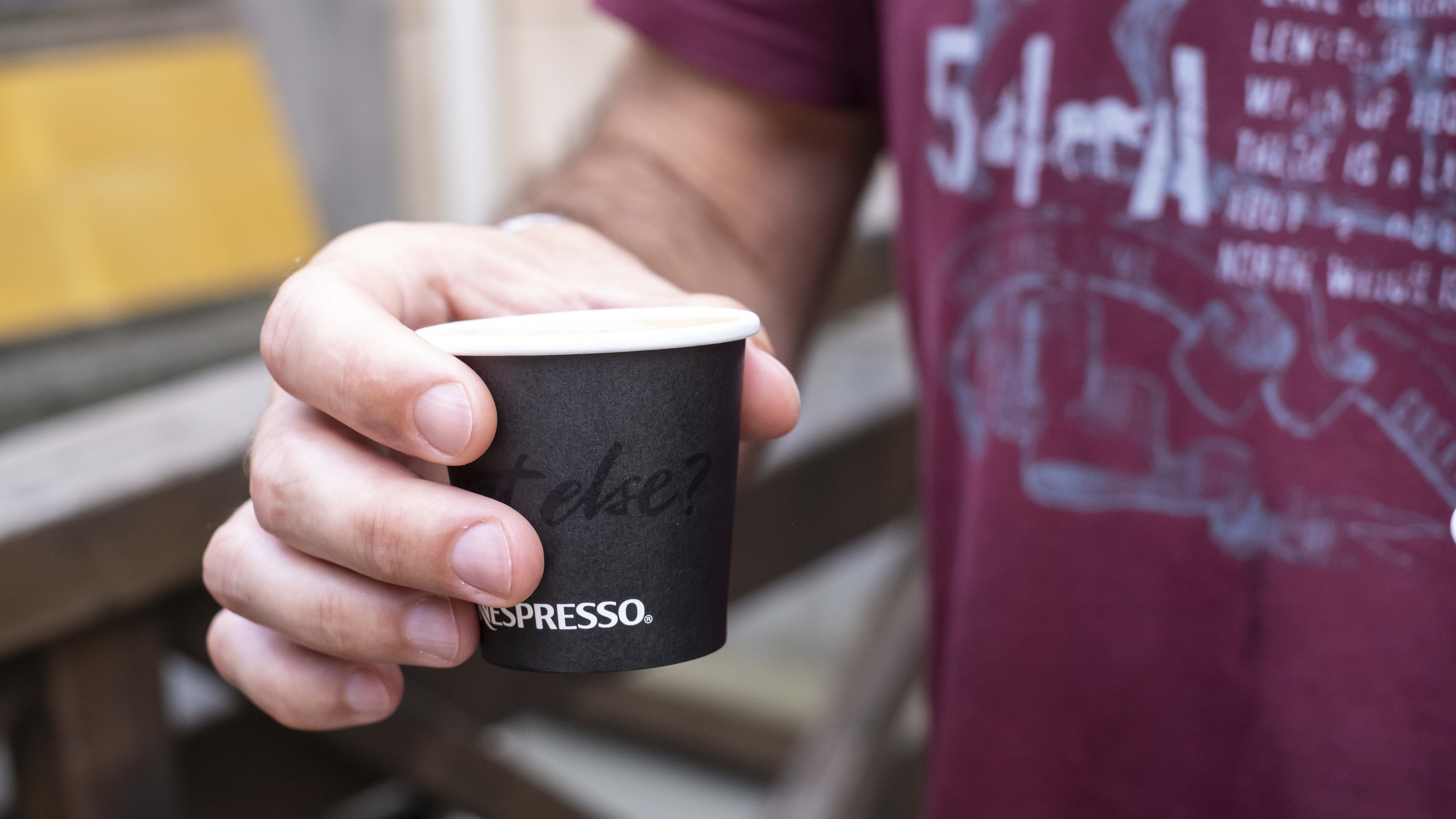
Nespresso coffee capsules
You probably know that at Tibidabo Amusement Park we have food centers where you can have a good Nespresso coffee. However, do you know where these coffee capsules go?
The used capsules are taken to a waste treatment plant where the aluminum is separated from the capsules and the "coffee grounds", which will be given a new life by transforming:
- Coffee grounds into high-quality compost;
- The aluminum is transferred to a metal recovery plant for reimbursement and reuse as a raw material, to be transformed into other everyday objects. For example, did you know that with the aluminum of 300 capsules you can produce a Vélosophy bicycle?
Therefore, in the Amusement Park during 2024 we generated about 735kg of coffee capsules. With the treatment of this waste, we were able to generate 120 kg of compost (approximately) and 11 kg of aluminum as raw material.
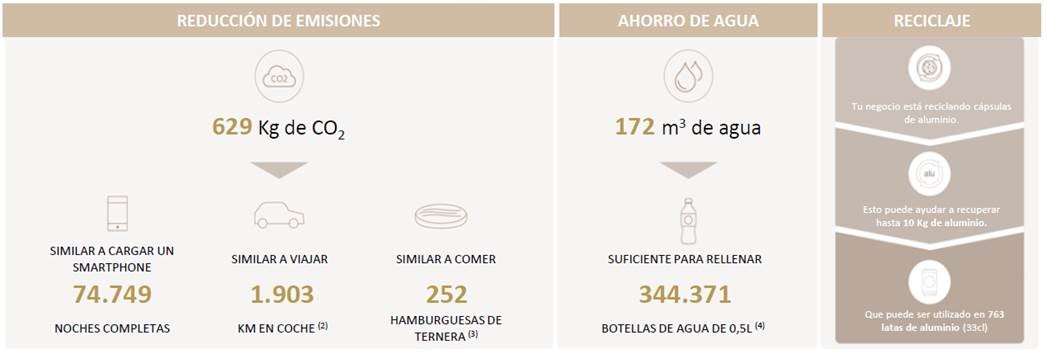
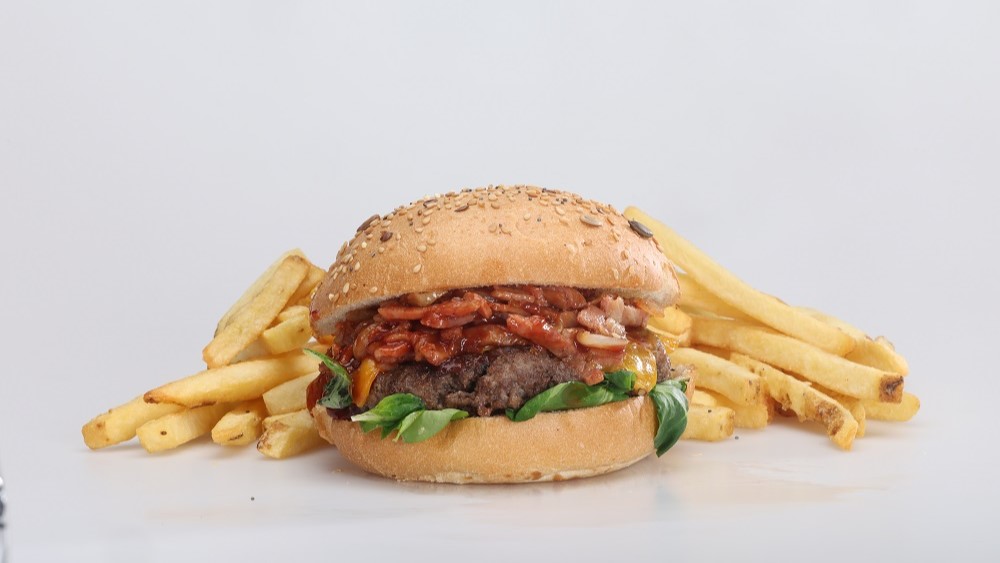
Vegetable oils from our kitchens
At the Tibidabo Amusement Park we have several catering centers, with their kitchens where the food that will be served is produced and where various vegetable oils are used. However, do you know what we do with these vegetable cooking oils that can no longer be reused? We give them a second life!
We collaborate with a waste manager who collects the vegetable oil drums that we deposit at our Green Point to be transferred to the treatment plant. It is in this plant where, after a long process, they transform this used vegetable oil into biogas and/or biodiesel.
In these treatment plants, for every 100 liters of vegetable oil used, 80 liters of renewable fuel are obtained. Considering that during 2024 1390 kg of vegetable oil were managed, 1152 liters of biodiesel have been generated. Therefore, 437.85 kg of CO2 linked to other treatment routes have been avoided (74.31kgCO2/tn), as well as:

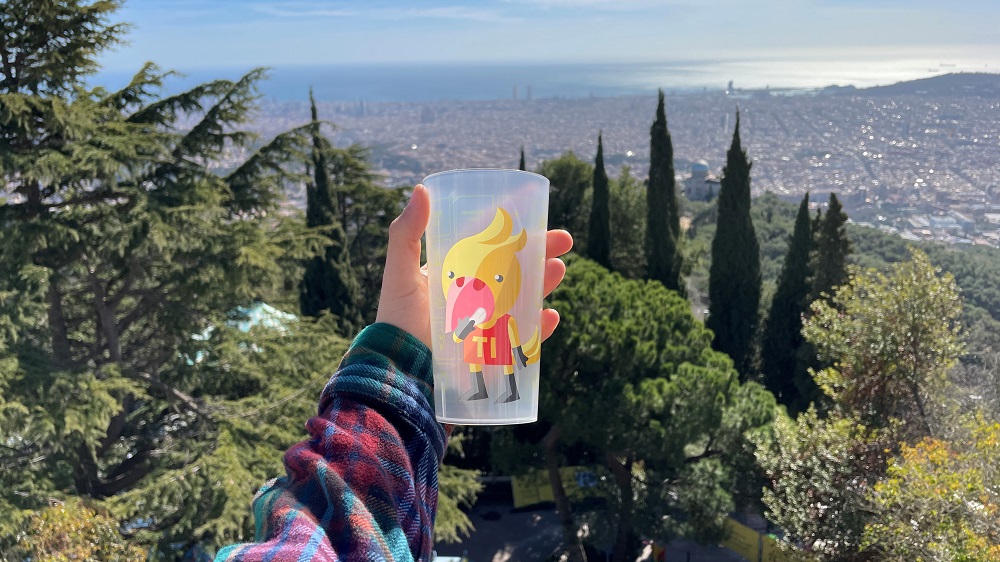
Returnable cups
With the aim of reducing the use of plastic cups, the Tibidabo Amusement Park resumed the use of reusable cups in March 2023 after the restrictions caused by Covid-19.
But how do you reduce the impact of using reusable cups?
Environmental Benefits
- Waste reduction: They avoid the generation of thousands of single-use cups that would end up in landfill or in the natural environment.
- Resource savings: The consumption of raw materials (plastic, paper, energy) necessary to manufacture single-use cups is reduced.
- Fewer CO₂ emissions: Reuse reduces the carbon footprint associated with the production and transport of new cups.
Economic Benefits
- Long-term savings: Although the initial investment is higher, returnable cups can be reused hundreds of times.
- Deposit system: Users pay a small deposit that is returned when they return the cup, encouraging responsibility.
- Reduced cleaning costs: Less waste means less work to collect and clean at events.
Social and Educational Benefits
- Promoting environmental awareness: Helps raise awareness among the population about responsible consumption and sustainability.
- Citizen participation: The system encourages people to actively collaborate in waste management.
Therefore, taking this information into account, throughout 2024 we have reduced the impact by 10.38 kg of CO₂ just by replacing old single-use glasses with reusable glasses*.
*(It has been taken into account that a single-use plastic cup weighs approximately 10 g, and that the footprint associated with the management of lightweight packaging is 0.12009kg Co2e/kg).
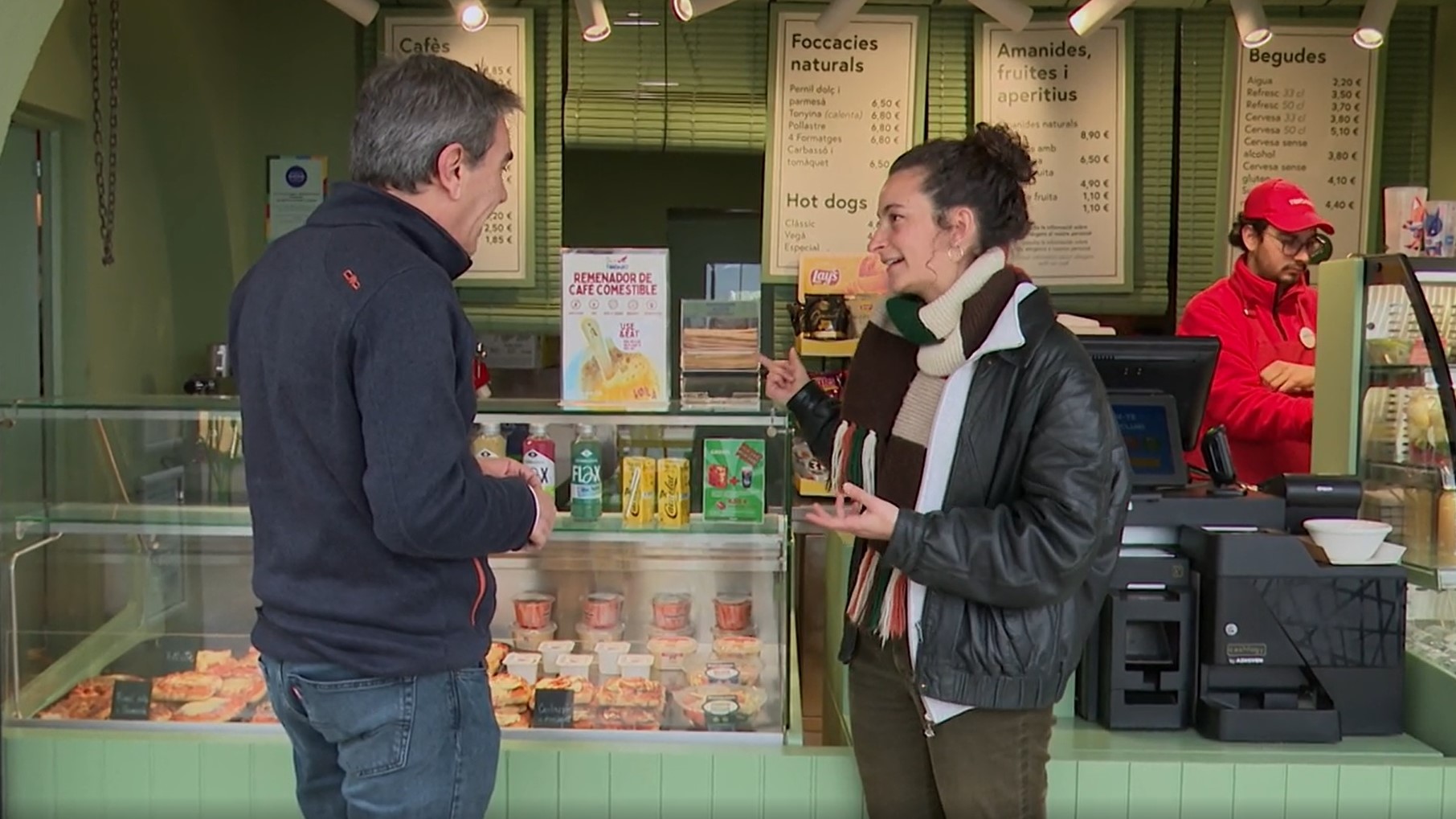
Edible cutlery
Edible cutlery is an innovative and sustainable alternative to disposable plastic or wooden cutlery. We introduced this proposal in 2024 to two new catering centers (green and Restaurant 666), as a pilot test, and it is currently being implemented in the rest of the Park's centers. With this initiative, the objective is to:
- Reduce waste: There is no need to produce any, as it can be eaten or composted.
- Eliminate plastics: helps comply with European regulations on plastic reduction.
- Introduce a local product, with less impact in its generation and transport to the Park.
- It is designed for all audiences: vegan, gluten-free, allergen-free.
Learn more with the following video.
Regarding the data obtained, taking into account that it was implemented in August 2024, until the end of the relevant year, about 38 kg were consumed, which corresponds to about 9,880 units of stirrers that we have avoided generating as waste.
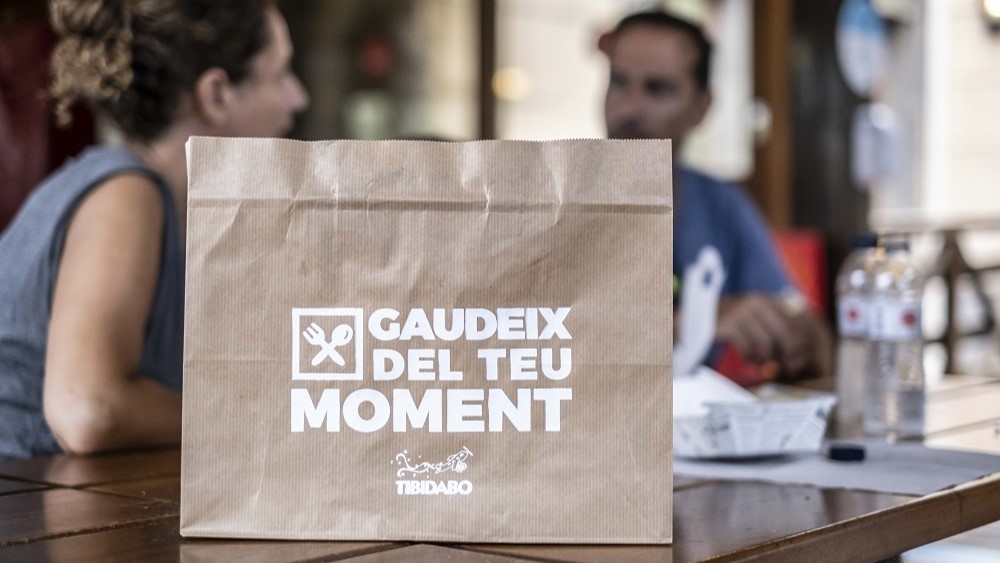
At Tibidabo Amusement Park, we aim to reduce the amount of food waste year after year. To achieve this, we implement several actions:
In the kitchen, we organize ourselves to avoid waste. Throughout the entire premises, we control that the FIFO (First in, first out) methodology is applied.
Take your leftover food to the lunchbox: in all catering centers and points of sale, there is the option of delivering a lunchbox to the customer, so that they don't throw away the food and can take it with them. However, if you don't bring a lunchbox, we give you the Take-Away container which, in addition, is compostable!
We don't throw anything away in the staff canteen!
- We reuse the product by making new products: croquettes, pudding, salads...
- We make adjustments to the daily menu according to stock with an upcoming expiration date.
- We adjust the food production to the preferences of the menu of the last shift at 4 p.m.
- The leftover product from Sunday is delivered to the staff for Monday-Tuesday.
- We study how to improve! Currently, we are collaborating with groups of students from the UAB to detect points where we can apply improvement plans to our Waste Plan.
Continue to collaborate with us and take your leftover food with you!
